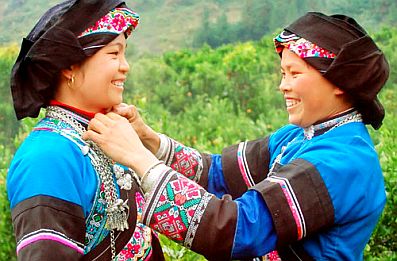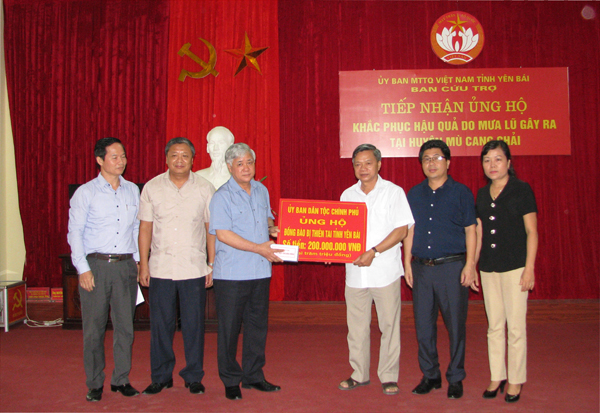The Bo Y are also called Chung Cha, Trong Gia, Tu Di, Tu Din and Pu Na. They have a population of about 1,500 inhabitants settling in concentration in the provinces of Lao Cai, Yen Bai, Ha Giang and Tuyen Quang. Bo Y language belongs to the Tay-Thai Group. Ancestor worship is the rule of their religion. On the altar three joystick containers are placed, the middle one for the heaven, one for the god of the kitchen and the other for the ancestors.
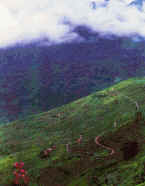
The Bo Y live mainly on slash-and-burn agriculture. They rear plenty of cattle and poultry and are experienced in fish- raising. Every year, when the rainy season comes, the Bo Y go to the rivers to catch up spawn and fry fish to put them in their ponds and submerged fields.
Some decades ago, the Bo Y used to practice carpen- try, blacksmithing, pottery, stone carving and silver engraving as additional occupations. Women know how to grow colon, spin threads, weave cloth, sew and embroider clothes and scarves, and so on. Women wear full skirt and a five-paneled shirt and a bra. Recently, some of them have adopted the Nung or Han way of dressing. The women prefer silver ornaments. They wear their hair wound tied in a chignon at the top of the head. Their headgear is an indigo turban of two metres wide and 0.3 metre long. It is arranged in a crow-bill shape above the forehead.

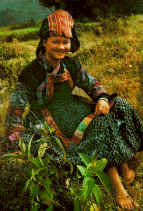
The Bo Y carry out the wedding ceremony in a compli- cated and expensive way. In the ceremony held to bring the bride to her husband's home, the family of the man sends 8- l0 persons to meet the bride. Among them are 1-2 unmarried couples and 2 married couples. A unique character is that the groom does not present in this ceremony. He sends his younger sister there to lead a pink horse. The bride's family also sends a similar accompanying group. On her way to the groom's family, the bride takes a scissors and a small hen with her, then releases these things in the midle of the road. In the former days, it is a habit that the Bo Y women gave birth in sitting position. The placenta is buried under the bed of the mother. When parents die, the children must prac- tise strict taboos for 90 days in mourning of their mother and 120 days in mourning of their father.
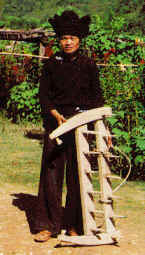
The Bo Y possess a rich treasury of fork arts and culture including ancient tales, proverbs and folksongs.
54 ETHNIC GROUPS
THỐNG KÊ TRUY CẬP
Số lượt truy cập hiện tại: 34
Tổng số truy cập:

